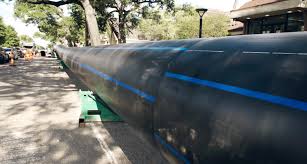Oct . 22, 2024 05:12 Back to list
List of HDPE Pipe Manufacturers and Factories for Quality Supply
Understanding HDPE Pipe Manufacturing A Comprehensive Overview
High-Density Polyethylene (HDPE) pipes have become a vital component in various industries due to their unique properties and advantages. These pipes are widely used for water supply, sewage systems, gas distribution, and agricultural applications, among others. Their durability, flexibility, and resistance to corrosion make them a preferred choice over traditional materials like metal or concrete. This article delves into the landscape of HDPE pipe manufacturing, including the factors influencing its production and the list of prominent factories producing HDPE pipes worldwide.
The Process of HDPE Pipe Manufacturing
The manufacturing of HDPE pipes involves several key steps. Initially, polyethylene resin is gathered and melted to form a molten state. This is followed by extrusion, where the molten material is forced through a die of the desired shape, typically a hollow tube. Once extruded, the pipes are cooled, cut to length, and then subjected to various quality checks to ensure they meet industry standards.
One of the benefits of HDPE pipe manufacturing is the ability to produce pipes in a wide range of diameters and lengths, allowing for tailored solutions based on specific project requirements. The pipes can be made flexible or rigid, depending on the application, giving manufacturers the versatility to serve different sectors effectively.
Key Factors Influencing HDPE Pipe Production
A multitude of factors influences the production process and the quality of HDPE pipes
1. Raw Material Quality The quality of polyethylene resin significantly affects the final product. Manufacturers source raw materials from reputable suppliers to ensure consistent performance.
2. Technology and Equipment Advanced machinery and technological innovations play a crucial role in enhancing production efficiency and ensuring high-quality outputs. Continuous investment in new technologies is critical for competitive advantage.
3. Manufacturing Standards Compliance with international standards such as ASTM, ISO, and various local regulations is mandatory. These standards outline specifications for materials, dimensions, and performance characteristics, ensuring reliability and safety in applications.
4. Environmental Considerations Modern factories are increasingly focusing on sustainable manufacturing practices. This includes recycling waste materials and reducing energy consumption during production processes.
hdpe pipe list factories

5. Labor Force & Expertise Skilled labor is essential for maintaining high-quality production standards. Continuous training and development of the workforce are necessary investments for factories aiming to remain competitive.
Prominent HDPE Pipe Manufacturing Factories
Several factories around the world are recognized for their production of HDPE pipes, setting benchmarks in quality and innovation
- KWH Pipe (Finland) A leader in the European market, KWH Pipe specializes in developing new solutions for piping systems while ensuring eco-friendly manufacturing practices.
- Groupe Polyvance (France) This company focuses on crafting high-quality HDPE pipes for various construction applications, known for their advanced technology and commitment to sustainability.
- Cedar Composites (USA) Engaged in the development of composite materials, Cedar Composites produces HDPE pipes that meet high standards for strength and durability.
- China National Chemical Corporation (ChemChina) As one of the largest producers globally, ChemChina manufactures an extensive range of HDPE pipes catering to diverse industries, leveraging advanced technology in production.
- Saudi Arabian Basic Industries Corporation (SABIC) SABIC is notable for producing high-quality HDPE resin, which is instrumental in producing reliable piping systems for various applications across the Middle East and beyond.
Conclusion
HDPE pipes have transformed the way industries approach piping systems, offering a reliable, durable, and eco-friendly alternative. With numerous factories worldwide dedicated to their production, the HDPE pipe market continues to grow. As technology advances and sustainability becomes a priority, we can expect further innovations in this crucial sector, ensuring that HDPE pipes remain integral to infrastructure development globally. Whether for municipal water systems, agricultural solutions, or industrial applications, the significance of high-quality HDPE pipes will endure in the years to come.
-
HORON 25mm PPR Pipes - AI-Optimized Plumbing Excellence
NewsAug.02,2025
-
Premier HDPE Sprinkler Pipe Manufacturers | Durable Solutions
NewsAug.01,2025
-
DN500 HDPE Double Wall Corrugated Drain Pipes | Durable & Efficient
NewsJul.31,2025
-
1/2' PVC Electric Protective Pipe - Durable, Lightweight Conduit
NewsJul.31,2025
-
DN25 PPR Water Pipes for Kitchen - Durable & Leak-Proof Plumbing Solution
NewsJul.30,2025
-
HDPE Sprinkler Pipe Manufacturers – Durable Irrigation Solutions
NewsJul.30,2025

